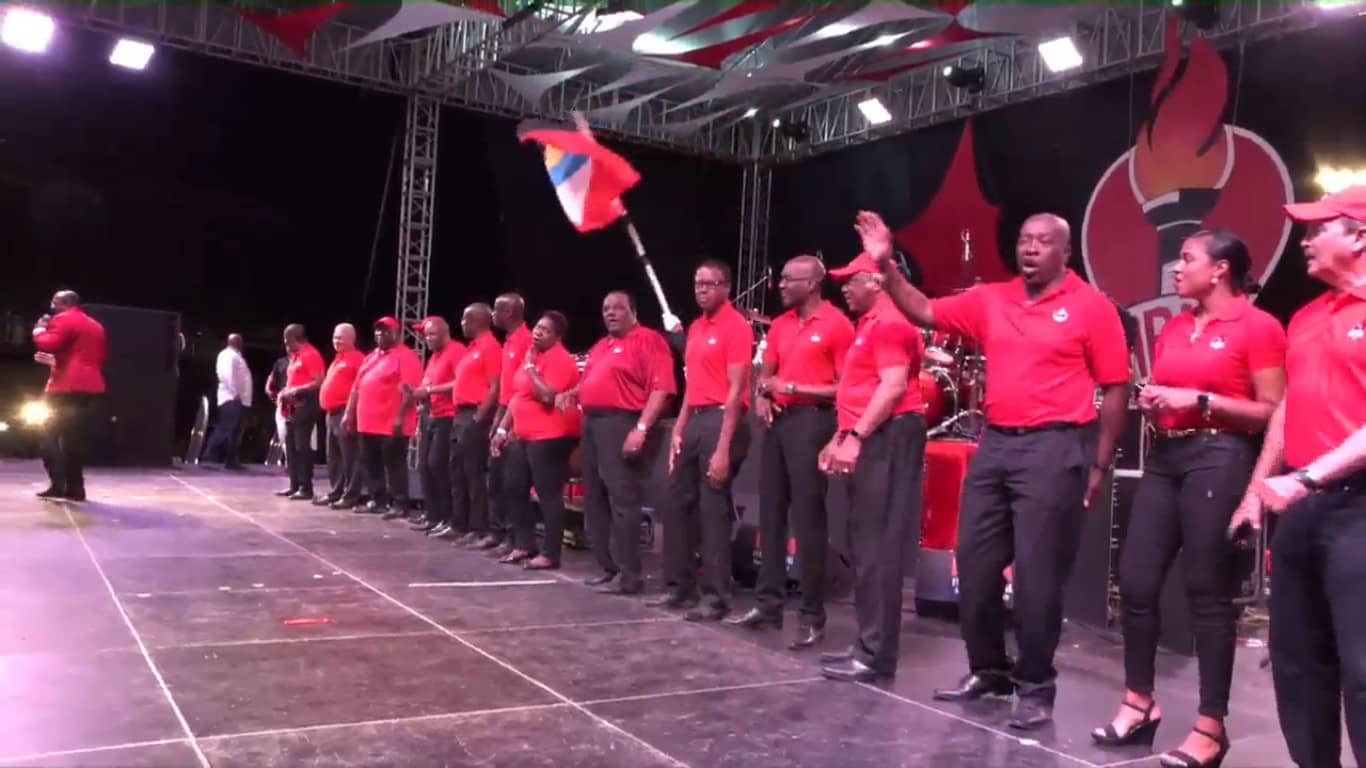
by President Wigley George, Antigua Trades and Labour Union
Labour Day reveals a turning point of triumph over oppression, of conquest over exploitation, of labour exceeding the might of capital. Our Antigua and Barbuda in the years before and after 1834 was a nation characterised by extreme poverty; by barefoot people dressed in ragged clothing; by illiteracy and superstition. Read Sir Novelle Richards’ The Struggle and the Conquest.
The AT&LU DESTROYED COLONIALISM
The Antigua and Barbuda Trades and Labour Union (AT&LU), founded on 16th January 1939, was the vehicle upon which rode the movement from colonial domination to sovereignty. It spawned the Antigua and Barbuda Labour Party (ABLP), which carried the struggle to independence and beyond.
The AT&LU/ ABLP destroyed colonialism in Antigua and Barbuda. The changing global circumstances, leading to the dismantling of colonialism—generated principally by the creation of the United Nations in 1945—enabled small islands to become sovereign states. General Assembly Resolution 1514/XV outlawed colonialism in 1960.
Labour Day 1951, forced by the AT&LU/ABLP, ushered in that expression of a changing world, new prospects for better circumstances, and a superior island-country to emerge from three hundred years of brutality. Upon a slate of five AT&LU members becoming elected to the eleven-person Legislature in July 1946, the five-person team tried valiantly to persuade the unelected m a j o r i t y- m e m b e r s of the legislature to amend the Holidays Act to include “Labour Day”—a holiday for workers.
There were national holidays for bankers, another for merchants, but none for workers. The unelected majority in the Legislature would not support declaring a workers’ holiday. After five years of trying without success, beginning in 1946, the AT&LU decided to take the holiday without the benefit of law on 1st May 1951—exactly seventy years ago. Hundreds of workers gathered at the open space near the Public Market/ Bus Station to defy the lawmakers.
They listened to speeches by the leaders and then walked, sailed or were bused to Fort James in order to celebrate the increasing popularity of the union/ party. That tradition continues—except for these two COVID-19 pandemic years, 2020 and 2021.
The workers’ objections led to the promulgation of a new constitution in that same year, 1951, bringing adult suffrage to a colonial outpost, and dividing Antigua and Barbuda into eight constituencies on 20th December 1951. Colonialism was being dismantled, and the AT&LU was leading the building of a new Antigua and Barbuda.
LUCY ISHMAEL AND AVERYL WYNTER REMEMBERED
Two women are etched into the history books for their courage and daring on rules governing Labour Day, withholding of labour, unfair dismissal, and freedom to picket. Lucy Ishmael, a domestic worker, informed her employer no less than three times that she would join her union on 1st May 1951, and that she was prepared to forego the pay she would have earned on that day. Yet, on the day following Labour Day when she reported to work, Lucy Ishmael was dismissed. Her union picketed the home where she worked, and an enterprise operated by her employer. The union asserted that a man employed at the enterprise was being utilised to undertake Ishmael’s domestic duties. The owner sued the union for picketing both his home and his business, and the Court granted his wish for an injunction and damages. The union seemed to have suffered a loss. Then came Averyl Winter, in 1955, a clerk in a drug store who was dismissed unfairly.
Her union picketed the enterprise from which she was severed. That owner utilised the same legal tools and arguments as the Lucy Ishmael employer. This matter went all the way to the Privy Council in London, and after nearly five years, a judgment was rendered in favour of the union. Picketing of an enterprise or a home is allowed and the union may exercise that tool to voice its displeasure with the employer, the Court ruled. No liability attaches to the union, and a union is free to picket whenever it chooses.
The Lucy Ishmael decision was essentially overturned. That freedom extended to the union, allowed by law, gave the union greater momentum in its struggle against the owners of capital who controlled those who sold their labour.
The scales of justice, customarily imbalanced in favour of the captains of the sugar industry and their merchant-class supporters, were being dethroned.Two very brave women were at the forefront of this struggle and their union took their cause to the Courts and eventually found justice. Labour Day was the critical event that generated the forward movement of an entire people who wished to transform their lives and that of their progeny.
LABOUR DAY IS MADE LAWFUL BY THE PARLIAMENT IN 1953
There existed in 1953 two legislatures governing the Leeward Islands: The Legislative Council, and the General Legislative Council. By 1953, the Legislative Council in each of the Leeward Islands was elected. But the General Legislative Council was selected from the local Legislative Council with a formula based on the size of the local Legislative Council. That General Legislative Council made Labour Day lawful throughout the Leeward Islands.
However, the AT&LU/ ABLP continues to mark Labour Day as commencing in 1951. Therefore, seventy years of Labour Day is appropriate. May the workers of Antigua and Barbuda never forget the bravery and courage required to fight for workers’ rights, rather than to continue to acquiesce to the superior power of the colonials who wished continued poverty and control over the forebears of today’s Antiguans and Barbudans. We give thanks to those who learned a lesson which Vere Cornwall Bird frequently repeated and practised: Those who wish to change their circumstances, must cast the first blow.
May the AT&LU, now more than eighty years old, and its political arm, the seventy-five-year-old heritage ABLP, continue to demonstrate that the work of the labour movement is unfinished.
Advertise with the mоѕt vіѕіtеd nеwѕ ѕіtе іn Antigua!
We offer fully customizable and flexible digital marketing packages.
Contact us at [email protected]

















REDULTS FOR 2033 ELECTION as follows.
ABLP 17 SEATS. UPP 00. SEAT. DNA. 00 SEAT
BARBUDA. 00 SEAT.
Remember the half billion dollars that Weston say the government have put up. Is that what they planning to use this time. Is that the election money. IT NAR GO WOK THIS TIME
Meant 2023 election.
What is the latest with YIDA?
These red clowns are one big pappy show. The AT&LU abandoned Antiguan workers in 1968, and exists only on paper today.
The sky is pink!
Spoken like a true Labour Party hater.
And I am proud to be one of them. This Gaston Browne administration is the worse government ever. Everybody is laughing at Gaston. BTW did you hear how Boris Johnson kicked him in the teeth and indirectly told him to go to hell.
I guess you missed that.
The worst gov’t to date has been the “SUNSHINE GOVERNMENT”. Oh how the sun bunnup Antigua and Barbuda people. No wonder the people kicked the “SUNSHINE GOVERNMENT” to the curb like a cheating ex!
Convinced the people to give them a chance and pulled off a bait-and-switch on the people. ONE SINGLE PRINGLE says it all.
Ahem we already lived through Hurricane Lovell aka Mr IMF aka Mr Rthym aka Mr Giveaway ABST we good.
I see the RED BRIGADE IN MOTION.50 Years of bull dung. Look at those on the line closely. The sizes of some and their abdomen.
70 years a hard labour
Comments are closed.